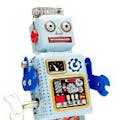

1st Place
Each winner was awarded a $1000 E Giftcard + Tool Kit + Special Swag Pak ($1,260 value)
2nd Place
Each winner was awarded a $500 E Giftcard + Coffee Machine + Special Swag Pak ($699 value)
3rd Place
Each winner was awarded a $300 E Giftcard + Special Swag Pak ($340 value)
Runner Ups
Each runner up was awarded a Lighted Tape Measure + Special Swag Pak ($50 value)
Overview
The future of resilient cities prioritizes preparedness, proactive planning, and the implementation of innovative strategies to build and maintain strong foundations that can withstand and recover quickly from disruptions.
By establishing efficient waste management systems, preserving natural habitats, and encouraging predictive maintenance options, resilient cities can improve the overall quality of life for residents by adopting cloud-connected sensor technologies to drive useful insight to help identify potential risks, develop emergency response plans, and implement early warning systems.
In this contest, we are asking participants to use Microchip's AVR-IoT Cellular Mini to develop and demonstrate a comprehensive system that reads sensor data and then creates an action to address the following smart city scenarios:
- Predictive Maintenance: Design and implement a predictive maintenance system that can accurately monitor and predict the health of industrial machinery or equipment related to city infrastructure. Use sensor data, machine learning algorithms, and IoT (Internet of Things) connectivity to enable real-time condition monitoring, fault detection, and proactive maintenance scheduling.
- Waste Management: Devise an innovative waste management strategy that minimizes waste generation, optimizes waste collection and disposal processes, and promotes recycling and sustainable practices. This may include developing smart waste monitoring systems, waste segregation techniques, recycling programs, waste-to-energy conversion technologies, or any other creative solution aimed at reducing waste and promoting environmental sustainability.
- Interspecies Interactions: Participants should leverage devices to monitor the presence and behavior of various species or natural resources within the city. Use the device to trigger automated actions, such as activating sprinklers during dry periods to support plant life or deploying deterrents to keep animals away from sensitive areas. Use sensor data to help assess the health of the habitat and identify bio-diversity, help track population trends, migration patterns, and changes in animal behavior, aid in corridor management, reduce the risk of animal-vehicle collisions, etc. For example: when an animal shows up, take a picture.
While these are great areas to focus on, if you have a killer idea that falls outside any of these areas that are unique to your city/community, that’s fantastic, too!
THE HARDWARE - we have awarded AVR-IoT Cellular Mini to the top proposals ✨Go the "Apply for Hardware" tab and you will see the winning ideas!
Prizes
1st Place
The best ideas that represent the use of IoT technology in the resilient city context.

3 winners
2nd Place

3 winners
3rd Place

3 winners
Runner Ups

Judges
An avid maker before it was a recognized vocation, Bob Martin has been tearing things apart to see how they work for his entire life. After obtaining a degree in electrical engineering from the University of Saskatchewan, he spent his early career installing specialized instruments into arctic weather stations, designing industrial control systems, and supporting upper atmospheric research campaigns.
With 30+ years of embedded system experience, Bob now serves as the “Wizard of Make” for Microchip to keep the maker spirit alive. In this role, he educates aspiring makers and continues to create, experiment and explore as much as he can. He lives in Sunnyvale, CA with his wife, twin daughters, a cat with no teeth, and a garage full of surplus wire and boxes of vintage electronics that really need to be recycled.
Jeremy Gosteau is the Senior Director of Product Marketing at Sequans Communications. Jeremy manages IoT product marketing at the company where he has held various positions, notably as the product manager responsible for defining the company’s first 4G LTE modem in 2009, and Sequans’ first IoT dedicated semiconductors---Calliope for Cat 1 and Monarch for LTE-M and NB-IoT---in 2014 and 2016, respectively. He launched major features with key partner operators, including China Mobile for the Shanghai World Expo in 2010, Verizon for the Super Bowl in 2014, and at Deutsche Telekom hubraum in 2019. He then turned his attention to identifying the primary market segments addressable by Sequans in the IoT space, and to contributing to the company’s long-term strategy. Jeremy has worked in several countries, including France, the UK, and the USA, and holds a master’s degree in electrical engineering from the Imperial College in London, and from Supelec in Paris. He is passionate about enabling a better-connected world through the convergence – in the semiconductor space – of cellular communications, satellite connectivity, enhanced security, and AI-empowered networks towards 6G.
Keenan Johnson is the founder of Ribbit Network. Keenan started his career tackling the biggest, most innovative project he could find: space exploration. He worked on satellites, space first aid, mars rovers, and rockets. He left SpaceX to found Impossible Aerospace and prove to the world that it was possible to eliminate carbon emissions from aircraft today. After Impossible, he joined the early teams at several startups including Bedrock Ocean Exploration: developing autonomous underwater vehicles to map the ocean floor, and Third Derivative, an accelerator for climate innovation. He also serves on the advisory board for several startups and non-profits.
Dahl Winters is a hands-on scientist/engineer in multiple fields of study pertaining to software and systems engineering for climate tech applications. Dahl is a Ph.D candidate in Systems Engineering at Colorado State University, and also the CEO of TerraNexum, former CXO of DeepScience Ltd, and a member of the OpenAir Collective, an 800+ member volunteer group dedicated to investigating and promoting open hardware carbon removal. Since late 2020, she has been working with a focus on low-cost, distributed carbon removal through open hardware. She co-leads the Cyan initiative with Chris Neidl at OpenAir to advance the improvement and broader use of this technology to assist in the remediation of climate change. Dahl has won several awards for her work, from open innovation challenges to hackathons, and most recently is a recipient of the OSHWA Trailblazers Fellowship. She has also served as an invited speaker for several conferences and workshops on sustainability and carbon removal.
Kate Fisher is a photovoltaics engineer with a long history in engineering research. After graduating with a Master's from UNSW in Sydney, Australia in 2007, she worked at IBM's T. J. Watson Research Center in New York making solar cells in a semi-conductor fab, then at Hanwha Solar's Advanced R&D Lab in CA before joining the Holman Research Group at ASU in 2014. In 2020, she co-founded Sunflex Solar LLC and won Round 2 of the American Made Solar Challenge. She is currently working on scaling up the invention they patented during that competition to pilot production at our industrial partner’s manufacturing facility in Washington. Part materials scientist, part process engineer, part product developer, and part failure analyst, her experience covers a wide range of disciplines but is always focused on reducing costs without sacrificing efficiency or reliability. How can we use less and do more - that’s what she wants to know!
Resources
Check out this Getting Started video from our Alex Glow
Or follow this guide written up by our judge Keenan Johnson to get started
Other useful links
- Product page
- Official onboarding tutorial
- Arduino tutorial
- Arduino library
- Microchip MakerZone series
- Bob Martin's video from 2022 Impact Summit introducing the hardware
- Getting started guide written by Microchip's Grace San Giacomo
Use the contest discord channel here to interact with other peers and for community technical support. We will be organizing office hours with judges and Microchip engineers as the contest progresses.
About us
Microchip Technology Incorporated is a leading provider of smart, connected and secure embedded control solutions. Its easy-to-use development tools and comprehensive product portfolio enable customers to create optimal designs, which reduce risk while lowering total system cost and time to market. The company's solutions serve more than 125,000 customers across the industrial, automotive, consumer, aerospace and defense, communications and computing markets. Headquartered in Chandler, Arizona, Microchip offers outstanding technical support along with dependable delivery and quality.
Contest Status
🎉 Prizes awarded! 🎉
Timeline
Registration opens
October 12, 2023 at 12:00 PM PDT
Competition begins
November 14, 2023 at 2:00 PM PST
Applications for hardware close
December 10, 2023 at 12:00 PM PST
Hardware recipients announced
December 18, 2023 at 12:00 PM PST
Submissions close
March 31, 2024 at 8:00 PM PDT
Winners announced by
Apr 29, 2024





















